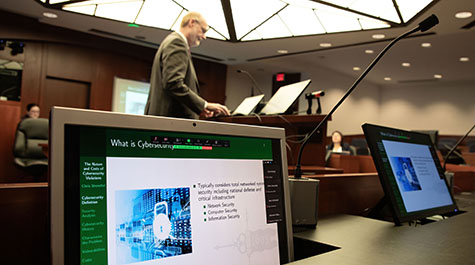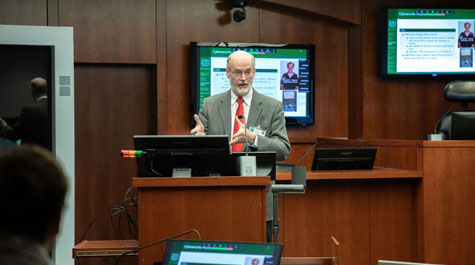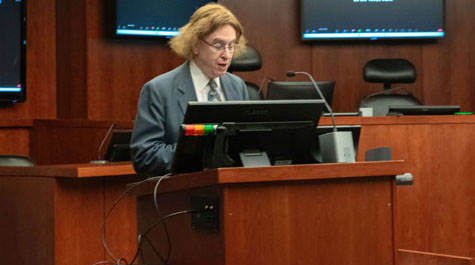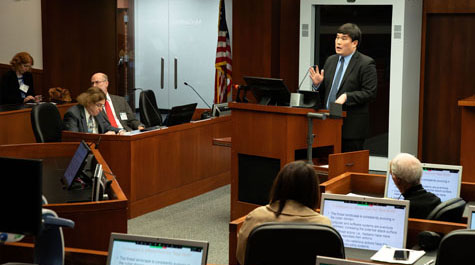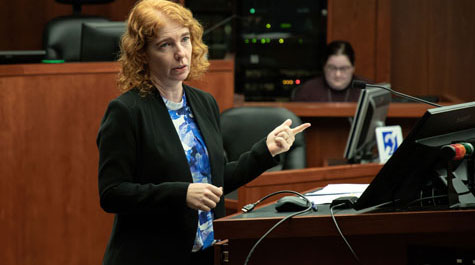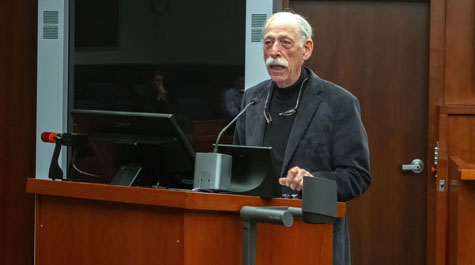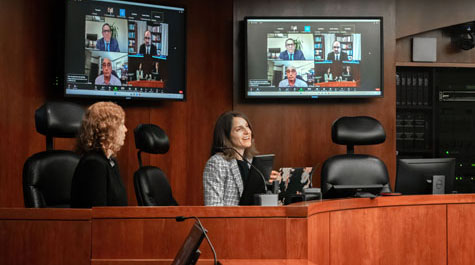Tort Liability for Cybersecurity Failures Examined at Center for Legal and Court Technology Symposium
On October 16, 2023, the Center for Legal and Court Technology (CLCT) hosted "Tort Liability for Cybersecurity Failures," where professors and researchers from William & Mary Law School, the University of Montreal, and the University of Southern California discussed tort liability for cybersecurity failure.
Sponsored by the Coastal Virginia Commonwealth Cyber Initiative, the free hybrid symposium began with introductory lectures by Chris Shenefiel (COVA CCI Senior Cyber Law Researcher), Daniel Shin (COVA CCI Research Scientist), Sarah Wasserman Rajec (Professor of Law, William & Mary Law School), Dr. Nicolas Vermeys (Associate Director, Cyberjustice Laboratory & Professor of Université de Montréal’s Faculté de droit), Fred Lederer (Director of CLCT and Professor of Law, William & Mary Law School), and Richard Herrmann, Esq. (Associate Director for Research at CLCT).
The explosion in online data and the corresponding rise in cybercrime, often made possible by inadequate cybersecurity, has had significant impacts on society. Companies, in coordination with federal and state agencies, have struggled and failed to protect data, especially personal identifying information. The relief that is customarily available to the victims whose data has been compromised can be insufficient for the harm suffered.
The symposium addressed the possible use of civil tort suits as a means to incentivize cybersecurity improvements. In light of history and policy, traditional tort suits for cybersecurity failures are made difficult if not impossible to win largely because of the speculative and often purely economic damages that stem from successful hacks.
Afterward, Laura A. Heymann (James G. Cutler Professor of Law, William & Mary Law School) led a panel with Eric A. Kades (Thomas Jefferson Professor of Law, William & Mary Law School), Sarah Wasserman Rajec, Donald Scotten (Vice Dean & Professor of the Practice of Law, Gould School of Law, University of Southern California), and Dr. Nicolas Vermeys, where they discussed applying tort law to cybersecurity.
About CLCT
The Center for Legal and Court Technology is a non-profit research, education, and consulting organization that works to improve the administration of justice through the use of technology. It aims to assist all members of the legal profession, from courts and government agencies to judges and lawyers. CLCT is a joint initiative of William & Mary Law School and the National Center for State Courts. From the outset, CLCT and its team have worked hard to accomplish its mission to improve the administration of justice through the appropriate use of technology.
